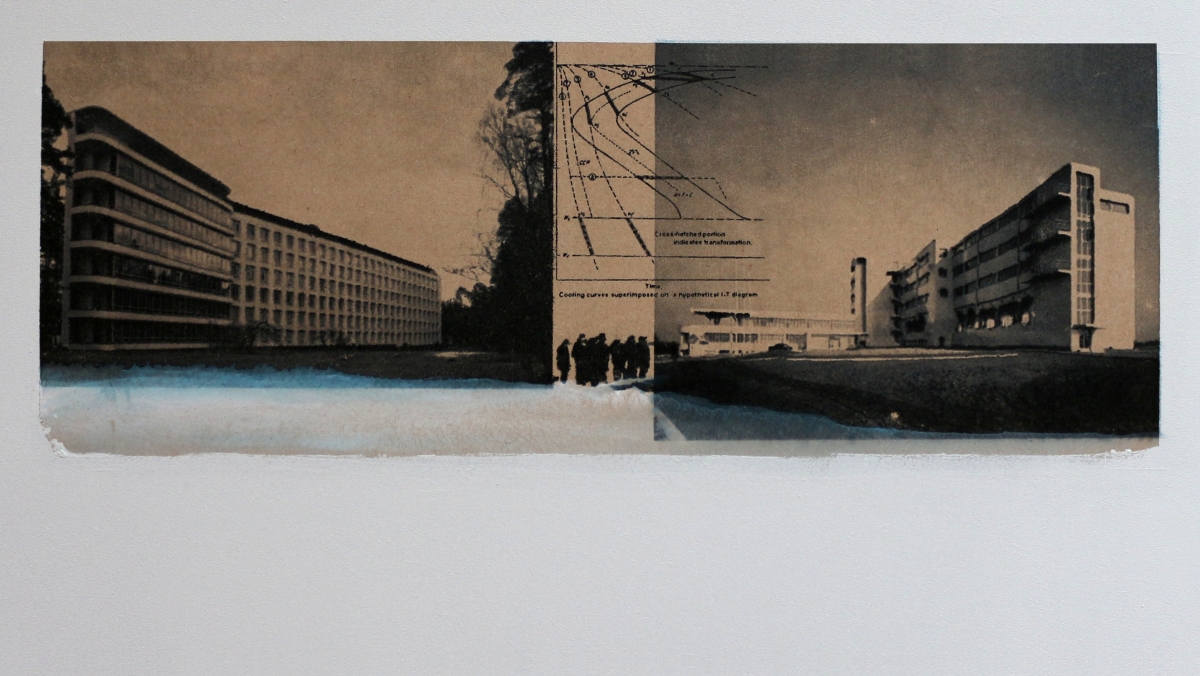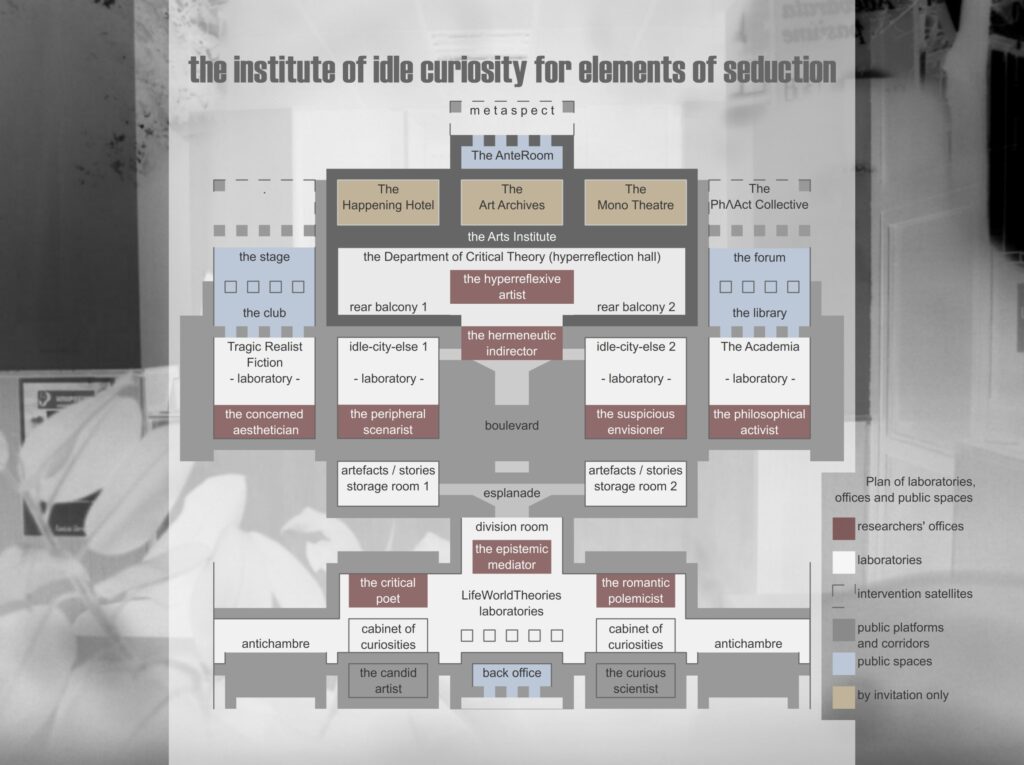
I started the art project “The Institute of Idle Curiosity for Elements of Seduction” somewhere in 2006. Meanwhile, it developed as a life’s work and a conceptual framework for all my artistic and philosophical activities. The project can be understood as a critical reflection on the idea of ideology-driven ‘social engineering’ in the way it became a socio-political practice in 19th and 20th century modernity, and it develops in all possible art forms (text, prints, drawings and paintings, music & soundscapes, found objects, installations, web presence, performances and happenings).
‘The Institute of Idle Curiosity for Elements of Seduction’ is a research institute, and its research programme is concerned with the way humans deal with the uncertain, the ambiguous, the complex and the unknown in social and political interaction in a world ‘still struggling with the cramps of modernity’. The basis of the research programme is a critical theory that targets strategies of conformism, positivism, profitism and populism in social, cultural, scientific, economic or political contexts, but the programme essentially wants to go beyond critical analysis as such. The aim is to research and formulate a ‘new humanism’ that could inspire new social life forms and political interaction methods that would be resilient to these strategies and that would enable and inspire real dialogue on well-being, solidarity and social justice.
As a philosopher, I take that research serious, and it became an activist and professional academic practice in itself. In that way, ‘The Institute of Idle Curiosity for Elements of Seduction’ is not only a critical analysis of the society we live in today, but at the same time also a philosophical and artistic experiment in ideological thinking. As a researcher of my own institute, I act in the ‘real’ worlds of art, of science and technology, of academic philosophy and of the international politics such as those of the United Nations. I present my socio-political critique and my vision on a new humanism in these worlds and I integrate reflections on these activisms back in my art practice. All these worlds have their own self-confirmative ratios, languages and codes, and depending on who I meet in these worlds, I tell variations of the story of who I am and of what I do.
Last but not least, the concept of the Institute also provides a frame for self-critique: I am critical towards power and profit in my philosophical activism, and reflexive about my activism in my art. I think ‘hyper-reflexivity’, as the highest end state ‘overlooking’ everything, will always result in melancholy, although not in its current simplistic meaning of depression it got from modernity. In August 2016, The Institute organised the ‘2nd World Conference on the Value of Melancholy in Times of Cheap Commitment’ in Antwerp, and on that occasion it reformulated the meaning of melancholy as an ethical experience in social interaction, and declared it the highest intellectual condition a human being can reach. The text ‘Revisiting Melancholy’ elaborates on that idea and can be read on the philosophy page.

… … < > … …